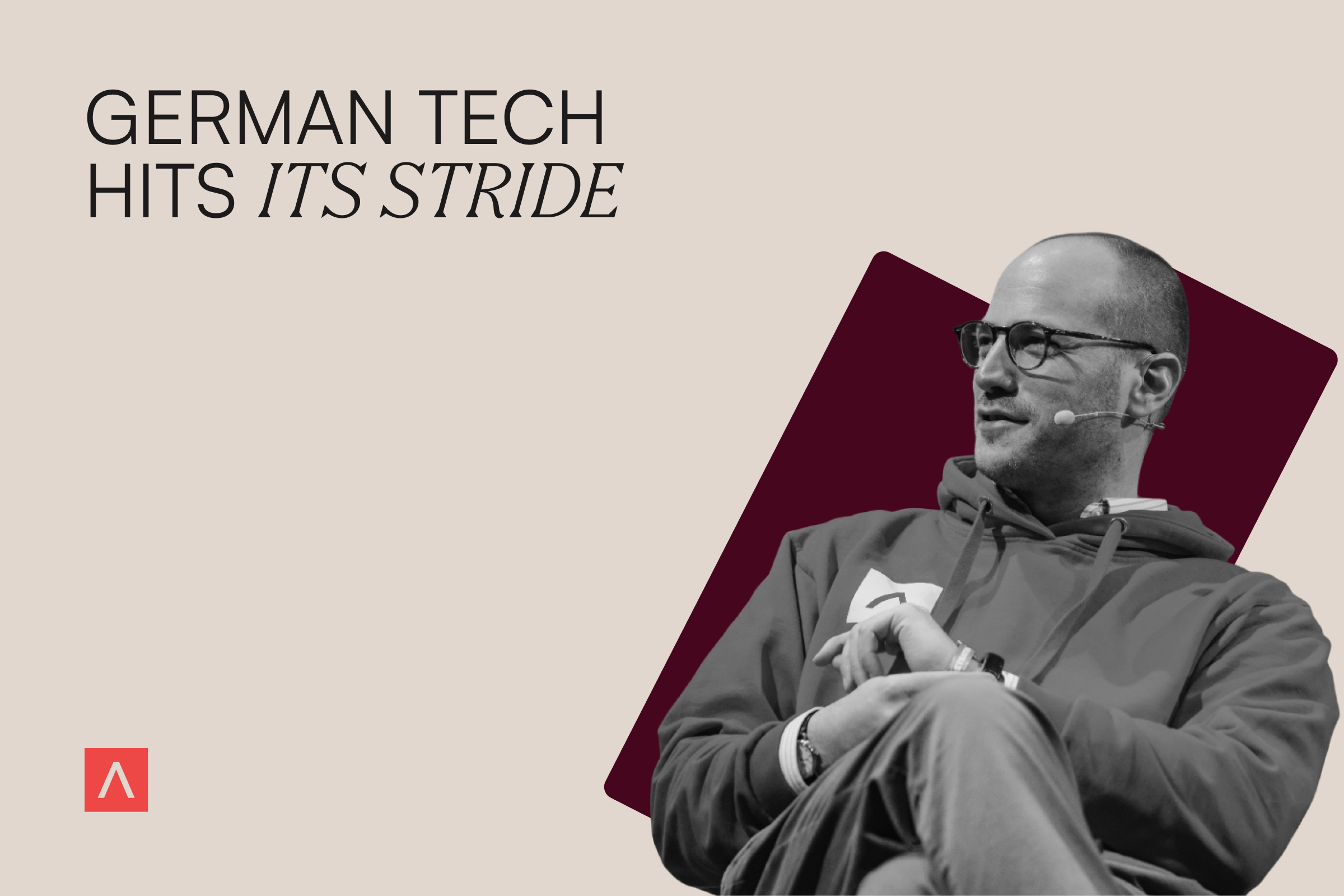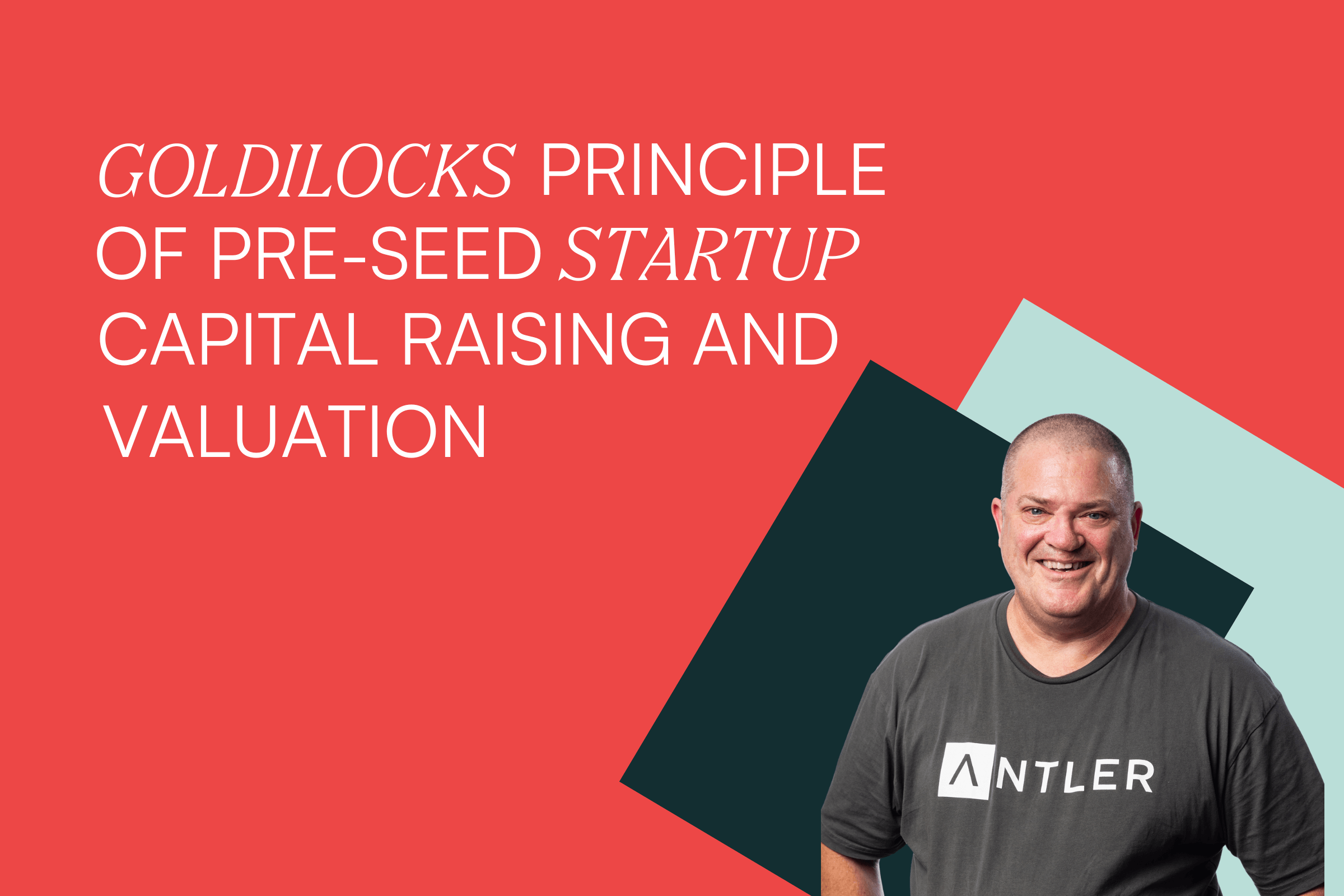Our third annual European Founder Conference in London, brought together institutional investors, leading VCs and the most promising startups from our portfolio.
Speakers included Anton Osika (Founder of Lovable, Europe’s fastest-growing startup), Marius Meiners (Founder of Peec AI), Harry Stebbings (Founder of 20VC), Matt Miller (Managing Partner of Evantic Capital) and Julia Hawkins (General Partner, LocalGlobe).
You can watch the entirety of our panel with Anton, Marius and Harry below. Or read on to discover 10 things we learned.
In Europe, appreciate the micro
If one thing was clear from our panel, it’s that Europe needs to stop talking itself down. Harry Stebbings of 20VC, who appeared alongside two founders he has invested in – Anton Osika of Lovable and Marius Meiners of Peec AI – was particularly passionate about this.
“We love to think about the macro in Europe,” he says. “Which is like, oh, we don't work hard enough, we all just sit and have espressos, we just have tube strikes…and yeah…I agree, but then you have these two [Anton and Marius]. And to put it bluntly, the micro is where venture makes its money.”
Lovable and Peec are now two of the fastest growing startups in Europe and as Stebbings points out, very few outliers will build generation-defining companies.
“People have the perception that they do of Europe,” he says. “But as long as we keep having unbelievable founders like Anton and Marius building, that's all that matters.”
Now is the time to work – you can find balance later
There’s a lot of sacrifices to make as a founder (especially if you go by Stebbing’s 996 approach), but as Osika sees it, the world is going through a historic shift. This is the best time to be building a company and get the biggest return on your effort, he says, so you need to seize the moment.
“It has never been this good,” says Osika. “And it's never going to be this good in the future once you have machine intelligence. It just makes sense to sequence things. Work really hard now, then I just really hope that I get back to the second part of the sequence, which is to live a bit more balanced life and maybe have a family in a few years.”
It resonates with what Magnus Grimeland from Antler likes to call front loading: call your family, let them know you’re going to be pretty absent for a year because you are working day and night on your business, then at some point you’ll have more time again.
Stebbings, naturally, has a fix for that. “I just hired my family,” he says.
The best founders have the same three attributes
Stebbings has invested in 12 billion-dollar companies. He’s interviewed the founders at pretty much every other billion dollar company to emerge over the past decade. And the best founders, he says, all have three things, things he saw in Osika and Meiners. These are:
1. A superiority complex. “They probably won’t admit it because it sounds a bit douchey,” says Stebbings. “But they fundamentally believe that they are actually better and more talented and more capable than other people. It’s inherent. It’s within them.”
2. An inferiority complex. “It’s paradoxical,” says Stebbings. “But it’s always thinking we're not moving fast enough. We're not doing enough. We should be doing more. I want to go, go…”
3. Impulse control. “You need an insane element of impulse control,” says Stebbings. “The ability to control real emotion and behavior in a way that other people don't, which goes to the sacrifice you need to make. The best founders have these three attributes universally.”
Stockholm is showing how it’s done
From where Osika is standing, Stockholm is popping. “We have hundreds of super ambitious founders now,” says Osika. “That are believing in themselves to an extreme, and that's what it takes.”
What they’re focusing on – building products – is part of that too. “They're not building these foundation models that are extremely competitive,” says Osika. “They're building products and that's where Europe has the chance to do much better than other countries.”
Osika ran some stats on users of Lovable and found that there are 100,000 new projects being built with it every day. The largest group are founders. “Assuming 1% is successful,” he says. “We're tracking to have 10,000 new startups built this year compared to last year.”
He continues: “If we have this type of ambition – that I see especially in the young founders who start in Stockholm – across Europe, we're just going to create much better, cheaper, great products. And that's how we're going to win.”
Innovation is fuelled by global talent
At Peec, Meiners says, drawing on the global talent pool is crucial. The company is based in Berlin, but “in the engineering team, we don’t have a single German working for us,” he says. Instead, they draw from anywhere in the world.
“We have three Brazilians that are crazy hustlers, one Indian, one Italian. They really want to get somewhere in life. They want to create something, they want to hustle and work and win for the team. And so that's kind of the people we've naturally attracted without setting out to do this.”
Hiring takes a lot of work, he adds, but “if you aggressively pitch your culture you will self-attract and self-select.”
Europe can’t outrace the competition. But it can out-execute.
Cristoph Klink, Antler partner for Central Europe has been digging into the data on European founders. His take? Europe is in the era of execution.
In the past five years, Europe has seen the emergence of two companies now ranked among the fastest growing software companies in the world ever. There are 14 “rocketships” – companies that were founded in the past five years that have reached unicorn status. How is this possible? Three things:
- AI. “This is leveling the playing field for those that are a little bit under-capitalized” says Klink. “When we ask our portfolio, then the founders will say 93% of them will say AI has helped them execute faster. And half of them would say it's more than 5x faster.”
- Focus. “There is an insane focus on execution,” says Klink. “For a long time the key concern has been fundraising and capital availability. Now it is the speed of execution. Companies are pushing to go further, faster. This is the way to win in this age and in the coming decade.”
- Technical skills. “When you look at the 10 fastest growing software companies in the world, 94% of the founders have a technical background,” says Klink. “In the past only one in four European founders has been technical. Now, the newest generation of companies we see for the first time, 90% of the founders with a technology background and that is matching what we see across the pond in the US.”
The biggest challenger for AI founders? Dealing with demand
Chris Pedregal, founder of Granola, has spent his entire career doing startups “and trying to get people to care about what we’re doing.” Now, it’s the opposite.
“My inbox stopped working because I just get too many inbound emails,” he says. “People want to invest, work for us, use Granola, use it in their company, pay for it before we had a paywall...It's not because we're so great. I mean, I think it's a decent product, but it's because it’s a moment in history where things are changing and people are looking to get ahead. They don't want to get left behind and they're trying to figure out how to navigate that change.”
Pedregal compares it to when humans discovered fire. “I feel like we're in that type of moment,” he says. “And that means everything from the crazy way in which Granola spread organically and people adopted it to the amount of competition, the amount of funding… All of those things are functions of this really special moment in time that we're living in.”
London has the talent, the culture needs to change
London is the place to be, according to all our panelists. The problem is the culture needs to evolve. Pedregal fired in the US and hired in the UK – Granola is now based in the capital. “The talent's incredible,” he says. “The cultural problem is just, startups aren't cool here, right?”
In the US, Pedregal says, it was self-evident why someone would want to do a startup. In the UK he needs to convince them. “It’s seen as risky,” he says. “The good news is that the folks who are seeking a Silicon Valley style startup experience find us. So when we find people, it's a great fit and it's incredible. It's just...we can't do cold outreach in the same way, just because the odds of people being interested is much lower.”
For Matt Miller from Evantic Capital, London is the best place in Europe to live, work and build. “We have companies that are growing very rapidly now that are being built here, founded here, funded here,” he says.
“So you can say, well, we're behind the United States. Really, we're behind San Francisco. We're not behind Atlanta, Georgia, or Dallas, Texas, or New York City. We're better than all of these other cities in the United States here in London. We have better AI companies than anywhere else in the United States other than San Francisco. And so I think you have to reframe how you think about it.”
European science and engineering companies are going to make waves
Julia Hawkins from LocalGlobe started her prediction with a disclaimer: “I’m gonna say something controversial…” For her, the next wave of European startups that are going to be “super, super impactful” are not in AI, but in science and engineering.
She flagged one founder, James Dacombe, who started CoMind, a neuroscience startup that is transforming the way brain monitoring is conducted. “This is really redefining a standard of care which is based on a scientific and an engineering breakthrough,” she says.
“Right now it's wall to wall AI. But I think in 10 years time it's going to be back to back science based founders.”
Turbulent times lead to breakthroughs
The world is being shaken by populism and wars, while business and trade are being rocked by tariffs. Hawkins believes this can drive innovation. “Historically speaking, the Cold War resulted in huge amounts of innovation. We had the space race, we had nuclear energy…also supersonic travel came at that time.”
And right now, she adds, AI, along with advancements in material science, biochemistry and other fields, means that founders are able to see solutions to problems that previously were not possible.
“Even though there is a ton of turbulence,” she says. “I think it leads to founders stepping up and building companies that are actually creating the future that we're all gonna live in.”



.png)
%2520(1).avif)





.png)

